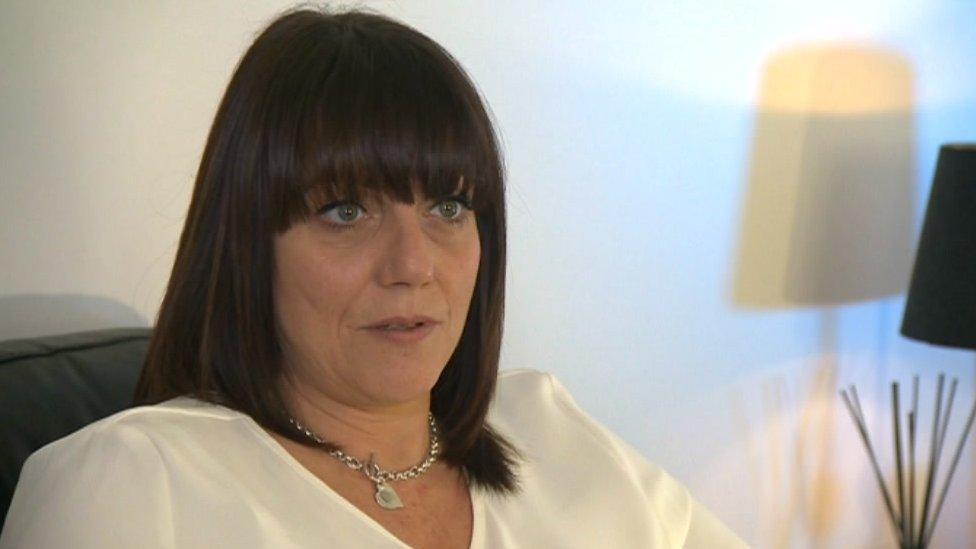Azaan Kaleem: Stabbing victim's mother speaks out on knife crime
- Published
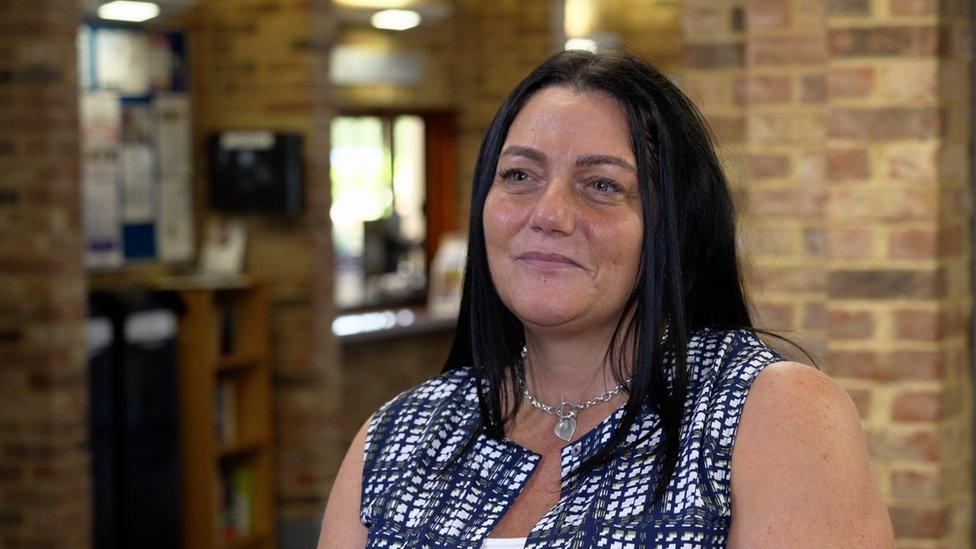
Roseann Taylor spoke about her son Azaan Kaleem at a youth conference in Bedfordshire
A mother whose son was stabbed to death said she was speaking to young people to prevent more knife crime.
Azaan Kaleem, 18, was with his girlfriend in Luton in March 2018 when he was fatally injured by strangers.
His mother Roseann Taylor took part in a youth conference in Bedfordshire aimed at stopping school pupils getting involved in crime.
"I do see an increase in violence that young people using again each other, it's scary," she said.
Mr Kaleem was stabbed on 22 March 2018 and died in hospital two days later.
Four men have been convicted over the death of the 18-year-old, known as AJ, who was Ms Taylor's only child.
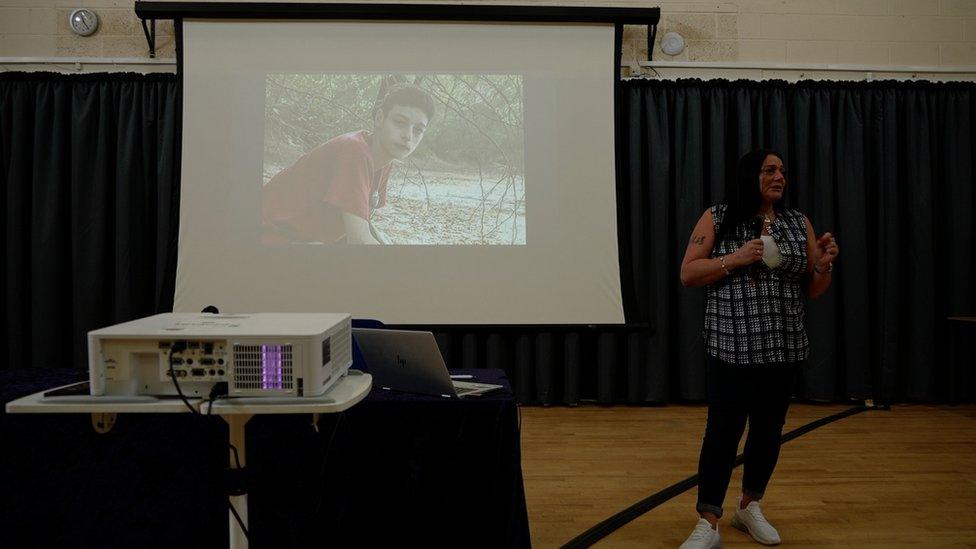
Roseann Taylor said she wanted to stop other young people falling victim to knife crime
She is taking part in the three-day event organised by Bedfordshire's Police and Crime Commissioner, Festus Akinbusoye, and the county's Violence and Exploitation Reduction Unit (VERU).
Year nine students from across Bedfordshire will take part in workshops and hear talks from speaking with experience of crime, including Ms Taylor.
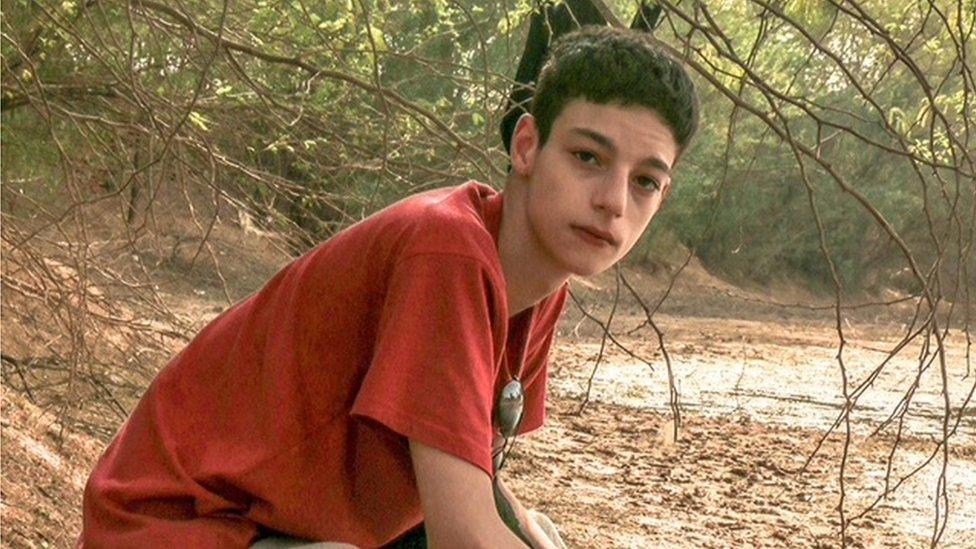
Azaan Kaleem, 18, died in hospital two days later after being stabbed in Hartsfield Road in Luton
She said: "I'd like to hope they take away the fact that it could happen to anybody and that you don't have to entrenched in gang culture for serious violence to have an effect on your life.
"There is support out there. Really it is letting them know it's there for them.
"I don't want another parent to suffer what I've suffered and I don't want any child to go through what happened to my son and the boys that did it."
Ms Taylor said since her son's death she sees knife crime "in every corner and in every place I look".
"I fear for our young people growing up as teenagers," she added.
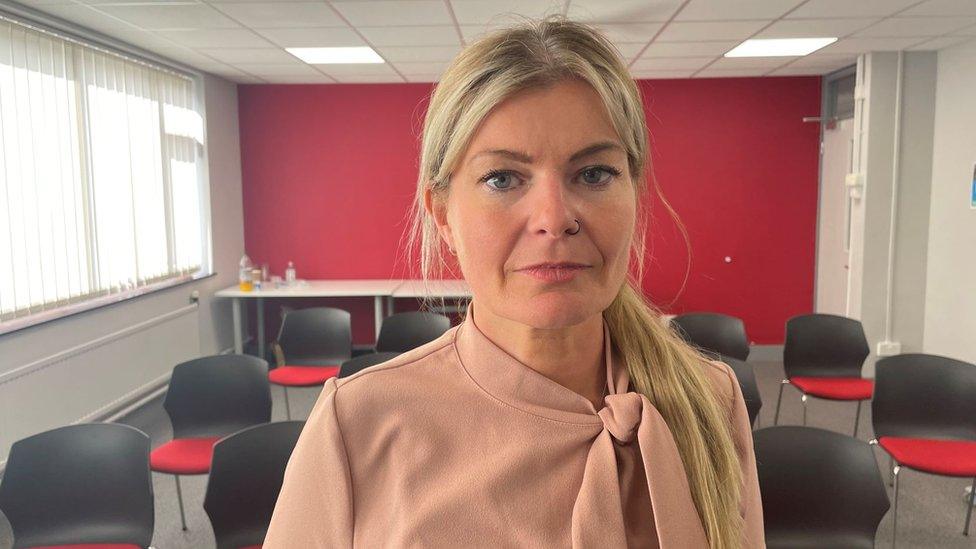
Acting Det Insp Elizabeth Spurling said the young people at the conference were "teachable and reachable" at Year 9 age
Another speaker at the conference is Acting Det Insp Elizabeth Spurling, the serious and organised crime manager for Bedfordshire Police.
She spoke to the school pupils about "organised crime groups, the crimes they commit and how that is linked to gangs".
Det Insp Spurling said: "The message for me is about them being ambassadors in our local community to help protect those most vulnerable to exploitation by gangs and serious and organised crime groups, recognise the signs to spot and actually help education their peers, their friends, their families to ensure all our communities are safer here in Bedfordshire."
She said the Year nine pupils, who are aged 13 and 14, were the right age to be taught about organised crime and gangs.
"They can protect their younger siblings, educate parents, and also spread that message out to the wider community," she added.

Find BBC News: East of England on Facebook, external, Instagram, external and Twitter, external. If you have a story suggestion email eastofenglandnews@bbc.co.uk, external
Related topics
- Published18 May 2022
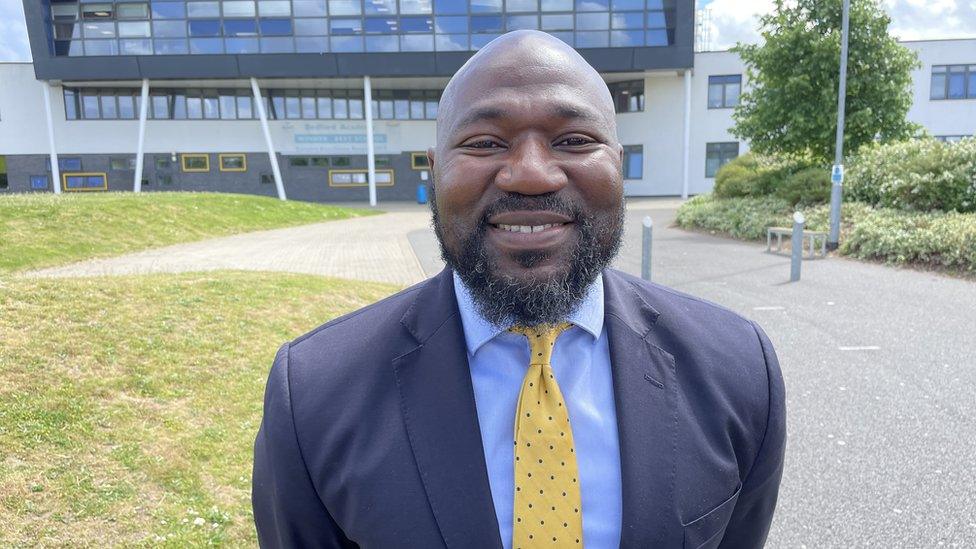
- Published4 November 2018
